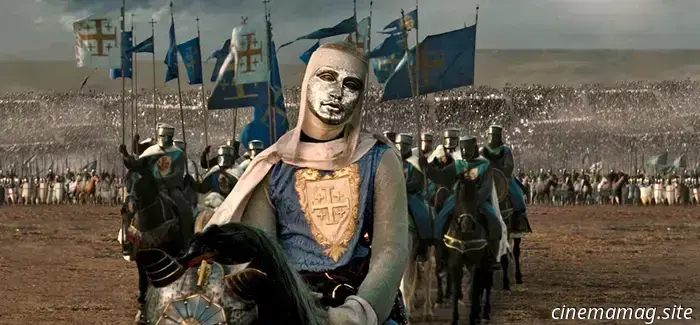
“It Is a Kingdom of Conscience or Nothing”: Ridley Scott’s Kingdom of Heaven at 20 Years
Twenty years ago, 20th Century Fox kicked off the summer blockbuster season with a sword-and-sandals film focused on the Crusades. The pedigree of Kingdom of Heaven was commendable, yet not infallible. Ridley Scott was just five years removed from his Best Picture win for Gladiator, along with immediate commercial successes like Hannibal and Black Hawk Down, both released in 2001. Additionally, popular actor Orlando Bloom had prominent roles in two thriving franchises, one of which had recently won Best Picture. However, it was still a bold venture, especially given the filmmakers’ confrontation of religious truths and customs during a time when fear had often morphed into hatred, with many using their faith to justify atrocious acts.
The movie follows Balian, played by Bloom, a blacksmith grappling with the grief of losing his wife and child. His father, Baron Godfrey (Liam Neeson), along with a group of crusading knights, arrives to urge him to join them on their journey to the Holy Land. After initially declining, Balian decides to go along after committing an act of revenge by killing someone. A deeply flawed and tormented individual seeking some semblance of God, he travels to Jerusalem but instead encounters conspiracy and conflict. As the righteous King Baldwin IV of Jerusalem (Edward Norton) succumbs to leprosy, an evil figure, Guy de Lusignan (Marton Csokas), who is married to the king's sister Sibylla (Eva Green), seeks to seize power, intent on annihilating Muslims and disrupting the fragile peace that had existed in the region. The narrative escalates to the Siege of Jerusalem, where Balian confronts Saladin.
Both Fox and Scott were hesitant about the over three-hour version following lackluster test screenings—a decision the director later lamented. (“This is the one that should have been released,” he stated regarding the longer director’s cut.) Even in the edited version that reached theaters on May 6, 2005, one of the most sympathetic figures is Salah ad-Din Yusuf ibn Ayyub, known as Saladin (Ghassan Massoud). He was the sultan of Egypt and Syria as well as the military leader of Muslim forces during the Third Crusade. Weeks ahead of the film’s debut, Scott penned a column for The Guardian where he mentioned:
“I aimed for people to perceive events from the Muslims’ perspective too, and the way to achieve that was to create robust, multi-dimensional characters on that side, particularly Saladin, portrayed by the talented Syrian actor Ghassan Massoud. I believed it was vital to cast Muslim actors for Muslim roles. We witness Saladin in private moments; we see his leadership and his attempts to maintain peace. He faced pressure from his people while contending with the radical factions of the Templars and others—what we might call the right-wing or Christian fundamentalists of their time. He is a man with a strong sense of purpose.”
Those fundamentalists were displeased with the film, and the overall reviews were lukewarm at best. The United States was deeply embroiled in both the Iraq and Afghanistan Wars. The events of 9/11 were just over three years old, leading to a significant rise in discrimination against Muslims, Sikhs, and individuals of Arab and South Asian descent. A blockbuster highlighting any sympathetic portrayal of Muslims was likely unappealing to many Americans in 2005. Moreover, screenwriter William Monahan took a daring approach by crafting a narrative about a knight who consistently rejects the call to action. In the context of Joseph Campbell’s “Hero’s Journey,” this “Refusal of the Call” is typically a precursor to the adventure. Here, Balian’s character development ultimately leads to tolerance and a form of Agnosticism; in the film's climax, he hands over Jerusalem to Saladin to ensure the safety of his people. By the conclusion of its domestic box office run, the film generated less than $50 million on a budget exceeding $100 million. Although it fared better internationally, it was still considered a failure.
Behind the scenes of Kingdom of Heaven
In a recent, excellent interview with Roxana Hadadi, co-star Alexander Siddig discusses the failure of the theatrical cut compared to Kingdom's eventual extended version:
“It’s far superior to the original cut. The initial version was criticized heavily, and the one who suffered was Orlando, as critics deemed him a poor lead. Had they grasped the nuances of his character's struggle and confusion about his purpose—reflecting a more complex portrayal—they wouldn’t have sought a Mel Gibson-type. They would have recognized a more intriguing perspective. I don’t think Orlando truly recovered from that.”
Bloom’s career as a leading man certainly did not rebound. Cameron Crowe’s Elizabethtown was ridiculed shortly after, followed by a few successful Pirates of the Caribbean sequels over the next two years,

Other articles
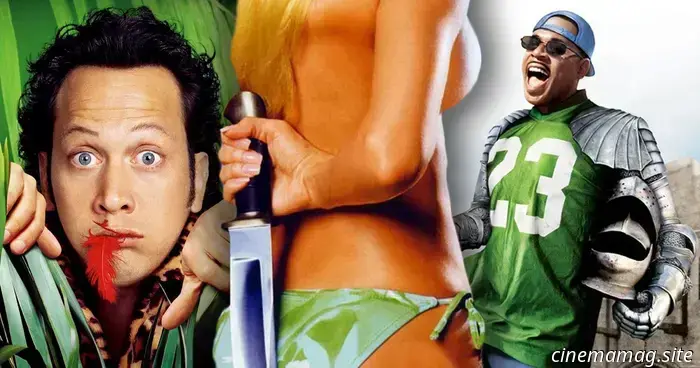 7 Overlooked Comedy Films from the 2000s That Deserve Another Look
EJ Moreno revisits a collection of underrated comedies from the 2000s. It frequently seems that films from the 2000s are among the most neglected. Positioned between the blockbuster surge of the 1990s and the billion-dollar phase of the 2010s, many projects from the 2000s are simply eclipsed by their contemporaries, particularly regarding […]
7 Overlooked Comedy Films from the 2000s That Deserve Another Look
EJ Moreno revisits a collection of underrated comedies from the 2000s. It frequently seems that films from the 2000s are among the most neglected. Positioned between the blockbuster surge of the 1990s and the billion-dollar phase of the 2010s, many projects from the 2000s are simply eclipsed by their contemporaries, particularly regarding […]
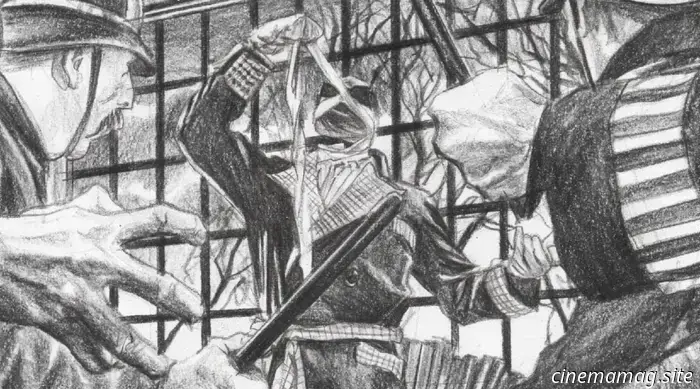 Image and Skybound have announced a new series centered around Universal Monsters: The Invisible Man.
Skybound Entertainment and Image Comics have revealed the upcoming installment in their Universal Monsters comic book series, featuring writer James Tynion IV (Something Is Killing the Children) and artist DANI (Coffin Bound) collaborating on the four-issue limited series titled Universal Monsters: The Invisible Man. “Reflecting on the initial discussion I had with Skybound regarding the […]
Image and Skybound have announced a new series centered around Universal Monsters: The Invisible Man.
Skybound Entertainment and Image Comics have revealed the upcoming installment in their Universal Monsters comic book series, featuring writer James Tynion IV (Something Is Killing the Children) and artist DANI (Coffin Bound) collaborating on the four-issue limited series titled Universal Monsters: The Invisible Man. “Reflecting on the initial discussion I had with Skybound regarding the […]
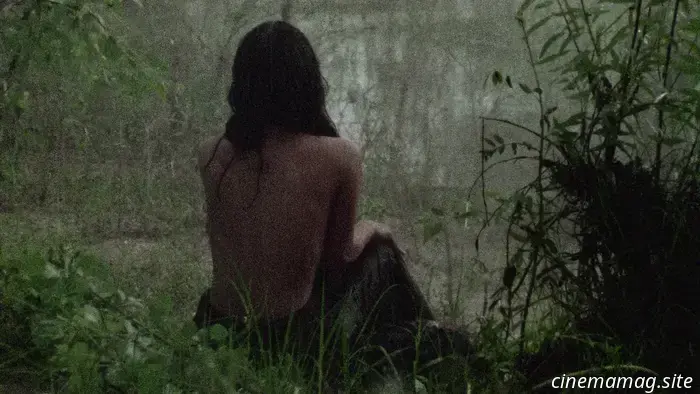 A landmark Iranian film has been restored, with an exclusive trailer now available for The Sealed Soil.
No North American distributor enhances film culture quite like Arbelos, whose extensive series of restorations continues with The Sealed Soil. Marva Nabili's 1977 film is the earliest surviving feature made by an Iranian woman, highlighting its fate of being largely forgotten. Nevertheless, the efforts of the UCLA Film & Television Archive to
A landmark Iranian film has been restored, with an exclusive trailer now available for The Sealed Soil.
No North American distributor enhances film culture quite like Arbelos, whose extensive series of restorations continues with The Sealed Soil. Marva Nabili's 1977 film is the earliest surviving feature made by an Iranian woman, highlighting its fate of being largely forgotten. Nevertheless, the efforts of the UCLA Film & Television Archive to
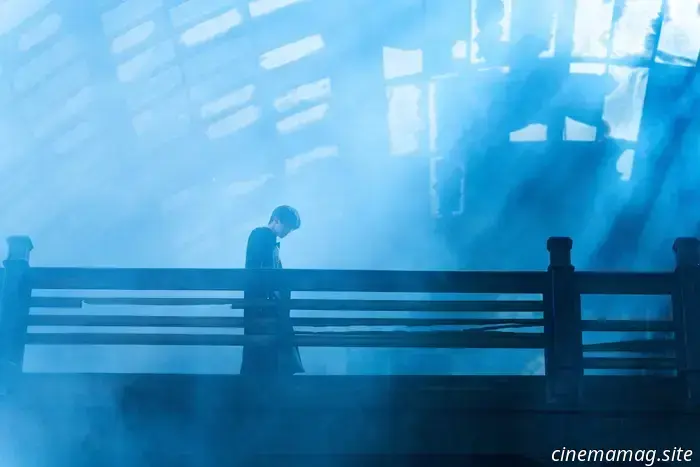 The initial teaser for Bi Gan’s Resurrection has been released ahead of its premiere at Cannes.
It appears that Cannes has reserved our most anticipated premiere for the end: just last week, it was revealed that Bi Gan’s sci-fi detective film Resurrection has been included in the main competition. Featuring a score by M83 and a cast that includes Jackson Yee, Shu Qi, Mark Chao, Li Gengxi, Huan Jue, and Chen Yongzhong, this is the latest work from the
The initial teaser for Bi Gan’s Resurrection has been released ahead of its premiere at Cannes.
It appears that Cannes has reserved our most anticipated premiere for the end: just last week, it was revealed that Bi Gan’s sci-fi detective film Resurrection has been included in the main competition. Featuring a score by M83 and a cast that includes Jackson Yee, Shu Qi, Mark Chao, Li Gengxi, Huan Jue, and Chen Yongzhong, this is the latest work from the
-4K-Ultra-HD-Review.jpg) The Good German (2006) – 4K Ultra HD Assessment
The Good German, 2006. Directed by Steven Soderbergh. Featuring George Clooney, Cate Blanchett, and Tobey Maguire. SYNOPSIS: Steven Soderbergh's imperfect 2006 project, The Good German, is now available in 4K Ultra HD for the first time. It includes a Blu-ray as well, but lacks a code for a digital version and only offers the trailer as a bonus feature. I always value it [...]
The Good German (2006) – 4K Ultra HD Assessment
The Good German, 2006. Directed by Steven Soderbergh. Featuring George Clooney, Cate Blanchett, and Tobey Maguire. SYNOPSIS: Steven Soderbergh's imperfect 2006 project, The Good German, is now available in 4K Ultra HD for the first time. It includes a Blu-ray as well, but lacks a code for a digital version and only offers the trailer as a bonus feature. I always value it [...]
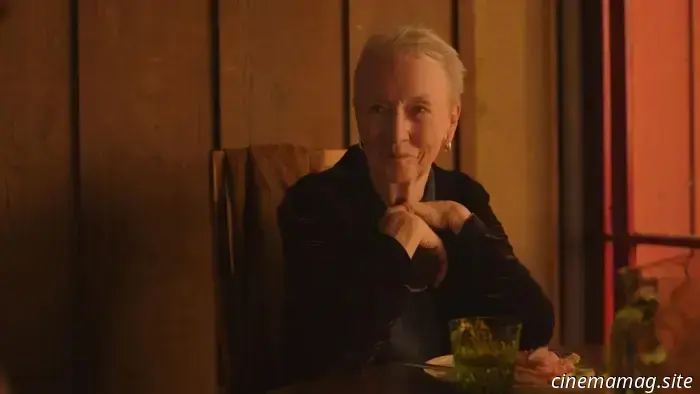 Familiar Touch Trailer: Sarah Friedland's Highly Praised Directorial Debut is Set to Premiere This June.
One of the most outstanding debut films in recent memory, Sarah Friedland's beautifully tender Familiar Touch debuted at the Venice Film Festival, earning accolades for Best Director, Best Actress, and Best First Film in the Orizzonti category. Following its premiere at New Directors/New Films, the drama featuring Kathleen Chalfant, Carolyn Michelle, Andy McQueen, and H. Jon Benjamin will
Familiar Touch Trailer: Sarah Friedland's Highly Praised Directorial Debut is Set to Premiere This June.
One of the most outstanding debut films in recent memory, Sarah Friedland's beautifully tender Familiar Touch debuted at the Venice Film Festival, earning accolades for Best Director, Best Actress, and Best First Film in the Orizzonti category. Following its premiere at New Directors/New Films, the drama featuring Kathleen Chalfant, Carolyn Michelle, Andy McQueen, and H. Jon Benjamin will
“It Is a Kingdom of Conscience or Nothing”: Ridley Scott’s Kingdom of Heaven at 20 Years
Two decades ago, 20th Century Fox kicked off the summer blockbuster season with a sword-and-sandals drama centered around the Crusades. Kingdom of Heaven had an impressive background, albeit not infallible. Ridley Scott was just five years removed from winning the Best Picture award for Gladiator, along with the successful releases of Hannibal and Black Hawk Down, both in 2001, and had recently established himself as a leading director.
